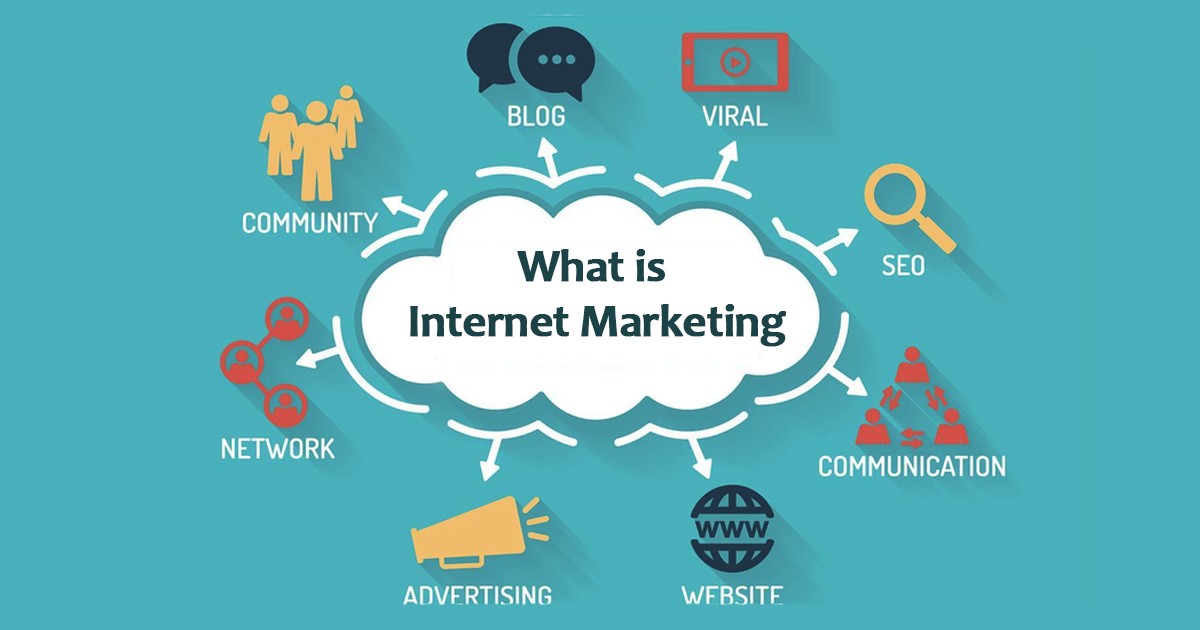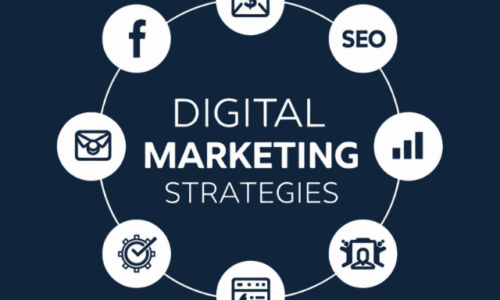
In today’s digital age, Internet Marketing is no longer a luxury; it’s a necessity. But what exactly is Internet Marketing, and how can you use it to boost your online presence? Buckle up, because we’re about to dive into the dynamic world of Internet Marketing, covering everything from the basics to advanced strategies.
What is Internet Marketing?
Internet Marketing, often referred to as online marketing, encompasses all marketing efforts that use the internet and digital platforms to promote products or services. This includes search engines, social media, email, and websites to connect with current and prospective customers.
Why Internet Marketing Matters
Why should you care about Internet Marketing? Simply put, it’s where your customers are. People spend a significant amount of their time online, searching for information, socializing, and making purchasing decisions. Without a solid internet marketing strategy, you risk being invisible to your audience.
Core Components of Internet Marketing
Let’s break down the core components of Internet Marketing. Understanding these will help you craft a comprehensive and effective strategy.
1. Search Engine Optimization (SEO)
SEO is the process of optimizing your website to rank higher in search engine results pages (SERPs). It involves keyword research, on-page optimization, link building, and more. The goal is to increase organic (non-paid) traffic to your site.
Key SEO Practices:
- Keyword Research: Identify the terms your audience is searching for.
- On-Page Optimization: Optimize titles, meta descriptions, and content.
- Link Building: Acquire high-quality backlinks to boost your site’s authority.
- Technical SEO: Ensure your site is fast, mobile-friendly, and well-structured.
2. Content Marketing
Content is king in the realm of Internet Marketing. Content marketing involves creating and distributing valuable, relevant, and consistent content to attract and engage a clearly defined audience.
Effective Content Marketing Strategies:
- Blogging: Regularly update your blog with informative and engaging posts.
- Videos: Create compelling video content that educates or entertains.
- Infographics: Use infographics to present complex information in an easy-to-digest format.
- Ebooks and Whitepapers: Offer in-depth resources that provide value to your audience.
3. Social Media Marketing
Social media platforms like Facebook, Twitter, LinkedIn, and Instagram are powerful tools for reaching and engaging with your audience. Social media marketing involves creating and sharing content on these platforms to achieve your marketing and branding goals.
Social Media Best Practices:
- Consistent Posting: Maintain a regular posting schedule.
- Engagement: Interact with your followers by responding to comments and messages.
- Analytics: Use analytics to track your performance and refine your strategy.
- Paid Advertising: Invest in social media ads to reach a broader audience.
4. Email Marketing
Email marketing remains one of the most effective forms of Internet Marketing. It involves sending targeted emails to your audience to promote products, share news, or build relationships.
Tips for Successful Email Marketing:
- Build a Quality List: Focus on growing an engaged and relevant email list.
- Personalization: Personalize your emails to increase engagement.
- Clear CTAs: Include clear and compelling calls to action.
- A/B Testing: Test different elements of your emails to optimize performance.
5. Pay-Per-Click (PPC) Advertising
PPC advertising allows you to place ads on search engines and other platforms, paying a fee each time someone clicks on your ad. It’s a way to buy visits to your site rather than earning them organically.
PPC Strategies to Consider:
- Keyword Selection: Choose relevant keywords for your ads.
- Ad Copy: Write compelling ad copy that attracts clicks.
- Landing Pages: Create optimized landing pages to convert visitors.
- Budget Management: Monitor your spending and adjust bids as needed.
How to Create an Effective Internet Marketing Strategy
Creating an effective Internet Marketing strategy involves several steps. Here’s a roadmap to guide you:
1. Set Clear Goals
Define what you want to achieve with your Internet Marketing efforts. Are you looking to increase website traffic, generate leads, or boost sales?
2. Understand Your Audience
Conduct market research to understand your audience’s needs, preferences, and online behavior. Create buyer personas to guide your marketing efforts.
3. Choose the Right Channels
Based on your goals and audience, choose the most effective Internet Marketing channels. This could include SEO, content marketing, social media, email marketing, and PPC.
4. Develop a Content Plan
Create a content calendar outlining what content you’ll create, when you’ll publish it, and where you’ll share it. Ensure your content aligns with your audience’s interests and needs.
5. Implement and Monitor
Execute your Internet Marketing strategy and continuously monitor your performance. Use analytics tools to track key metrics and make data-driven decisions.
6. Optimize and Improve
Regularly review your strategy and make adjustments as needed. Optimize your campaigns based on what’s working and what’s not.
FAQs About Internet Marketing
1. What is the most important aspect of Internet Marketing?
While all components are important, content is often considered the most crucial. Without quality content, other strategies like SEO and social media marketing can’t be effective.
2. How long does it take to see results from Internet Marketing?
It varies depending on the strategy. SEO can take months to show significant results, while PPC can drive traffic almost immediately. Consistency and patience are key.
3. Do I need to be on all social media platforms?
No, focus on the platforms where your audience spends the most time. Quality engagement on a few platforms is better than a weak presence on many.
4. How much should I spend on Internet Marketing?
Your budget depends on your goals and the size of your business. Start with a manageable budget and scale up as you see results.
5. Can I do Internet Marketing myself?
Yes, many aspects of Internet Marketing can be done in-house, but it requires time and expertise. Consider hiring professionals if you lack the necessary skills or time.
6. How do I measure the success of my Internet Marketing efforts?
Use analytics tools to track metrics like website traffic, conversion rates, social media engagement, and email open rates. Set specific KPIs (Key Performance Indicators) to measure your success.
Conclusion
Internet Marketing is a powerful tool that can help you reach a wider audience, engage with your customers, and grow your business. By understanding its core components and implementing a well-rounded strategy, you can maximize your online presence and achieve your marketing goals. Remember, the key to success in Internet Marketing is consistency, creativity, and continuous improvement. So, start crafting your strategy today and watch your online presence soar!




